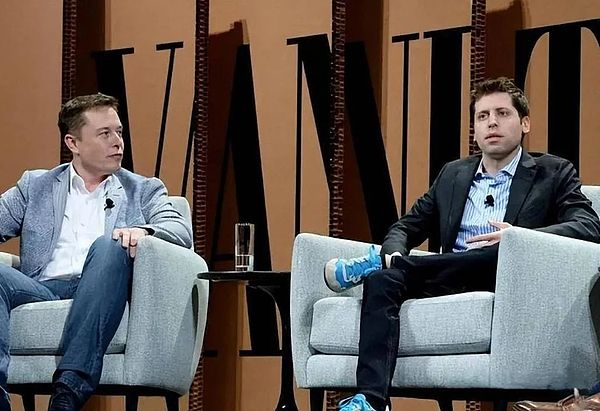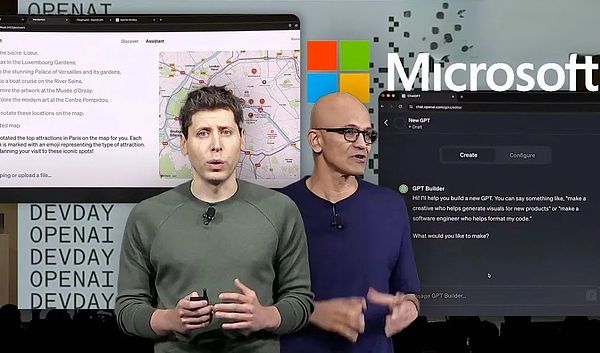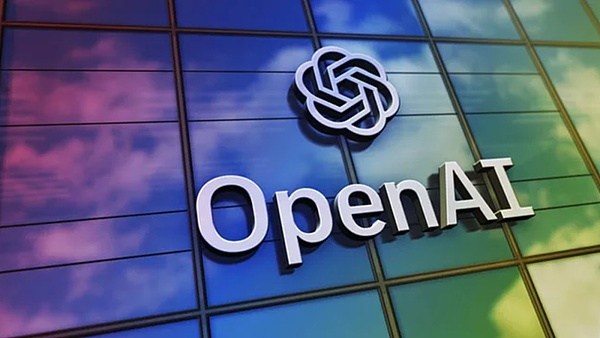OpenAI, which has spent $10 billion, has started raising funds again!
On August 30, CNBC and The Wall Street Journal reported that OpenAI is planning a new round of billions of dollars in financing. This round of financing will be led by Thrive Capital of the United States with an investment of $1 billion, and its valuation of OpenAI has jumped to more than $100 billion.
Currently, a new round of bets has begun. In addition to Thrive Capital, Microsoft, Nvidia, and Apple are all ready to move.
In less than two years, $10 billion has been burned
It has to be said that OpenAI's "burning money" speed is really fast.
The last round of OpenAI financing was in January 2023, when Microsoft invested about $10 billion, which is also the largest financing record in the field of AI so far.
From January 2023 to September 2024, in 20 months, OpenAI used $10 billion to exchange for a valuation of more than $100 billion and more than 200 million ChatGPT users (as of mid-2024).
If the timeline is extended, before becoming the leader in the AI world, OpenAI has experienced a total of 7 rounds of financing in ten years, including pre-seed financing, seed round financing, secondary market financing and corporate financing, with a total of more than $20 billion raised, making it a veritable "gold-eating behemoth".
In 2015, the newly established OpenAI won the favor of many capital giants, especially the current world's richest man Elon Musk.
In June 2015, led by Musk, venture capitalists Peter Thiel, Reid Hoffman, YCombinator founding partner Jessica Livingston, consulting firm Infosys, public cloud market leader Amazon Web Services, YC Research, and Sam Altman raised $1 billion in funding for OpenAI.
Although it got off to a good start, OpenAI's development fell into a bottleneck period in the three years from 2015 to 2018. At the same time, because it is a non-profit organization, the commercialization process is very inconsistent with Musk's plan.
Eventually, Musk broke up with OpenAI and announced his departure from OpenAI on February 20, 2018.

Musk and Sam Altman
Before 2019, OpenAI was quite cautious about financing, but with Musk's departure and the AI big model being at a critical stage from GPT-2 to GPT-3, OpenAI began to maintain a relatively open attitude towards financing.
In 2019, OpenAI received three rounds of financing in a row, from Khosla Ventures, Reid Hoffman Foundation, Matthew Brown, and Microsoft.
Among them, Microsoft, as the largest funder in the future, invested $1 billion in July 2019.
In order to obtain large-scale investment to complete the construction of the GPT large model, OpenAI transformed from a non-profit enterprise to a for-profit entity OpenAI LP with a profit cap. Under the new corporate structure, OpenAI attracted a large number of high-profile institutions.
In January 2021, OpenAI received investment from Tiger Global Management, Bedrock Capital, and Andreessen Horowitz, with the specific amount unknown.
In January 2021 and 2023, Microsoft invested $2 billion and $10 billion, respectively.
In April 2023, OpenAI continued to receive $300 million in financing from Sequoia Capital, Thrive Capital and other institutions.
With the support of nearly 20 billion in financing, OpenAI gradually gave birth to ChatGPT 4.0, ushering in a new era of AI.
Who is the biggest contributor to OpenAI and ChatGPT? The answer is not CEO Sam Altman, but Microsoft.

Sam Altman and Satya Nadella
In the past five years, OpenAI has received three rounds of financing from Microsoft, totaling $12 billion. 80% of OpenAI's funding comes from Microsoft.
Not only investment, Microsoft has provided OpenAI with a lot of resources. For example, all OpenAI technologies run on Microsoft Azure cloud servers, and Microsoft has built a large model computing center for OpenAI.
Microsoft has also integrated OpenAI into the Windows system. From Bing search, Microsoft 365 office software, to GitHub coding tools and marketing software, OpenAI is used to build an AI service system.
It can be said that Microsoft is not only the first investor in OpenAI, but also its first loyal user.
However, as the largest funder behind OpenAI, Microsoft is neither the leading institution nor the confirmed follow-up investment in OpenAI's new round of financing, which is somewhat intriguing.
OpenAI's "new funder"
The leading institution of OpenAI's financing this time is Thrive Capital, which can be said to be the new funder of OpenAI.
According to public information, the founder of Thrive Capital is Joshua Kushner, a new generation investor born after 1985 and a member of the "old money family" in the United States.
Joshua Kushner's brother Jared Kushner is more famous. He is the son-in-law of former US President Donald Trump and the husband of Ivanka Trump.
Thrive Capital's most brilliant achievement is that it participated in Instagram's Series B financing in 2012 and won a 100% return rate after Facebook announced a $1 billion acquisition of Instagram.
Joshua Kushner has a close personal relationship with OpenAI CEO Sam Altman. He is one of the most famous supporters of OpenAI and has been trying to invest in OpenAI.
In 2023, Thrive Capital led a new round of financing for OpenAI, followed by Sequoia Capital, a16z, K2 and other institutions. In this round of financing, Thrive Capital invested nearly $130 million, and OpenAI was valued at $27 billion at the time.
Not only did Thrive Capital participate in the investment, it also deeply intervened in the internal problems of OpenAI.
When Sam Altman was fired by the board of directors at the end of 2023 due to infighting in the company, Joshua Kushner was Sam Altman's biggest supporter. For five days, Joshua Kushner played an active role on the board of directors until Sam Altman returned.
Sam Altman has great trust in Joshua Kushner and Thrive Capital, and even publicly "boasted" on social platforms: "I have been fortunate to work with many excellent investors, but the person I want to recommend most is Josh (Josh Kushner)."

In order to increase his rate of return, Joshua Kushner has worked very hard to increase the valuation of OpenAI.
In April of this year, Thrive Capital led a sale of equity by former OpenAI employees. At that time, Thrive Capital's valuation of OpenAI increased from US$27 billion to US$86 billion.
When OpenAI's new round of financing was completed, Thrive Capital valued OpenAI at $100 billion, and even spread rumors on Wall Street that OpenAI's valuation could reach a high of $125 billion.
It has to be said that, except for Musk, every funder of OpenAI is a good person.
Maybe OpenAI will go public?
Although there are many funders, ChatGPT is too expensive.
When Microsoft's $10 billion financing was obtained, the outside world speculated that this money could support OpenAI for 2-3 years. As a result, it only took 20 months to run out of money in the increasingly competitive AI world.
Currently, OpenAI is developing the next-generation model GPT-5, which will only cost more than GPT-4 and GPT-4o.
Financing can only solve the immediate problem, but it does not quench thirst. If you want to get more money, the best option is IPO.
In June this year, US media reported that Sam Altman had told some shareholders that OpenAI was considering changing its governance structure to a for-profit enterprise, and OpenAI's non-profit board of directors could not control the enterprise.
By transforming into a for-profit enterprise, OpenAI can knock on the door of IPO with its own valuation of over 100 billion.

This is not a rumor without a trace. In June, OpenAI recruited Sarah Friar, a heavyweight financial expert, as its chief financial officer.
Sarah Friar has led the company to complete IPOs twice, the first time was Square, and the second time was Nextdoor.
As an "IPO expert", Sarah Friar's joining has undoubtedly injected a shot in the arm for OpenAI's preparations for listing. Faced with heavy tasks such as auditing, financial forecasting and governance structure changes, she is undoubtedly the ideal person to push OpenAI towards its listing goal.
Against this backdrop, this new round of financing for OpenAI is likely to be its last financing.
 ZeZheng
ZeZheng







